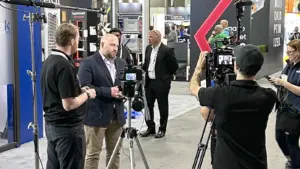Voice Technology and Meeting “The Human Standard”: Talk Human To Me
On this episode of Talk Human To Me, Host Tyler Kern talked with Dr. Hawid Nawab, Co-Founder and Chief Scientist at Yobe, Inc., and Ken Sutton, Co-founder and CEO at Yobe, Inc., which is an intelligent approach to a more human voice experience that unlocks the potential of voice for modern brands. Today, voice technology is held back by its inability to understand the deep meaning and emotion of human interactions. Yobe elevates voice technology to capture the nuances of everyday communication.
Voice technology has immense potential, and companies can work to meet the human standard when a device can respond to humans in near-real circumstances. An example would be current smart speaker technology, which people rely on and nowadays, since we are used to talking to through our phones.
“Voice technology, specifically, has made great strides over the years,” Nawab noted. “We have fantastic systems that do automatic speech recognition. That can do language understanding.”
However, there is a shortcoming in voice technology today, and that requires a voice to be put into a “lockbox,” according to Nawab, which keeps the voice isolated from everything else. For example, there can’t be a lot of other background noise when talking to Siri on an iPhone.
“That becomes more problematic when you have a smart speaker that you talk to from a distance,” Nawab explained.
Listen to hear more about voice technology and the human standard.







